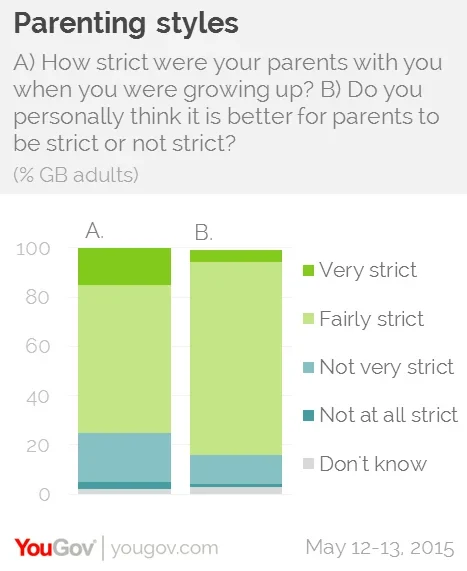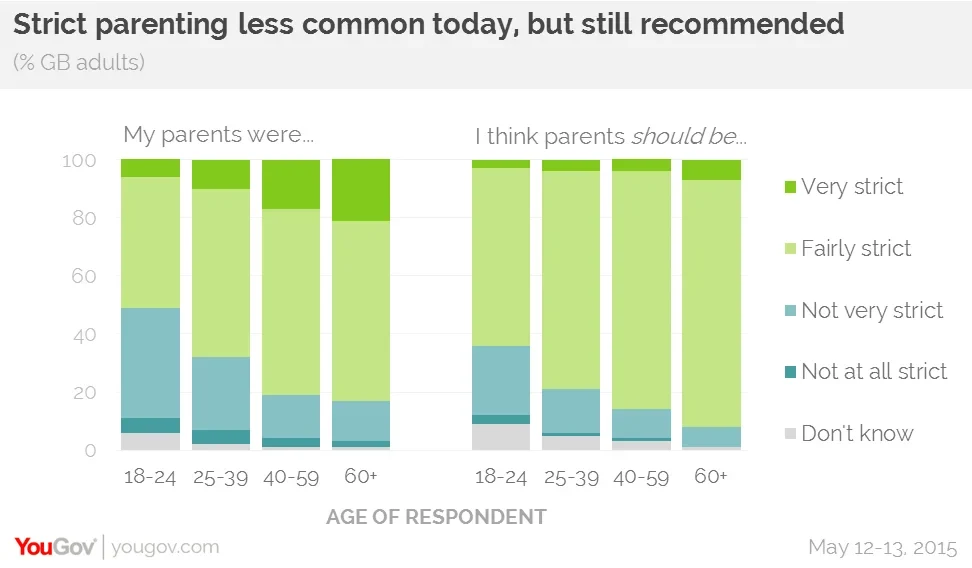Young people are much more likely to have had lenient parents, but most people – young and old – believe stricter parenting is best for children
In the perennial debate over how parenting should be done, one fundamental question is how strict parents should be with their children. Media coverage has often focused on the extremes: are children better off with a tiger mom, or should they be raised free range? However, as a new YouGov poll shows, there isn’t actually very much disagreement among the grown-up British population.
Three in four British adults (75%) say they grew up in a strict household. The vast majority of these – 60% of all adults – say their parents were only “fairly strict”, while 15% had “very strict” parents. 20% had “not very strict” parents and 3% had parents who were not at all strict.

Most people also appear to think strict parenting is best for children. 82% of adults say it is better for parents to be strict, including 78% who say “fairly strict is best”. Only 13% believe it’s better if parents aren’t so hard on the children.
Nearly everyone (92%) who says their own parents were fairly strict say "fairly strict" parenting is the best way to raise children. 67% of those whose parents were very strict and 57% of those whose parents were not very strict also say strict-but-not-too-strict parenting is best.
Strict parenting through the ages
Another important dimension is date of birth. 43% of 18-24 year olds, who were born between 1991 and 1997, say their parents were not very or not at all strict, compared to just 16% of respondents born in 1955 or earlier. Those now aged 60 and up are also three times as likely to say they had “very strict” parents (22% versus 7% for 18-24 year olds).
There is a similar gap on how parents should treat their children. But even then, more than 60% of every age group believes strict parenting is best.

There are no other major demographic groups besides age in which children of strict parents are set apart from children of lenient ones. There is little variation in different regions across Britain or between genders. Neither is there evidence that children of strict parents are financially better or worse off than others – 74% of employed, middle class respondents had strict parents, as did 75% of unemployed or working class respondents.
Image: Warner Brothers









